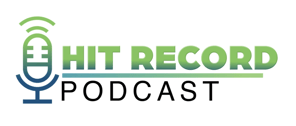Episode 53 - Tips for Leading a Creative Team at your Bank or Credit Union


Don't Miss An Episode, Subscribe Now

Meredith Olmstead, CEO of FI GROW Solutions, and Ben Bauer, Executive Director of Exclamation Services, discuss various topics related to leading creative teams at financial institutions, including:
- Adapting to Change: They talk about how the global pandemic has forced credit unions and community banks to rethink traditional work models, leading to more flexible and remote work arrangements.
- Leadership and Creativity: Ben shares insights into his transition from a creative role to a leadership one, emphasizing the balance between being involved and trusting his team. They also discuss building a "coaching culture" with regular check-ins and personalized development plans.
- Professional Development: They encourage continued professional growth, considering different preferences and needs, and how they allocate budget and resources to support their team's learning opportunities.
Transcription:
If you're looking for best practices for your bank or credit union, join us while we talk all things sales, marketing, and strategy for financial institutions. Let's make it happen with FI GROW Solutions.
Hi there. I'm Meredith Olmstead, founder and CEO of FI GROW Solutions. We are an inbound marketing and sales consulting agency, and we work exclusively with banks and credit unions. And I'm here on our Hit Record Podcast today with a special guest outside of our organization. His name is Ben Bauer. Ben is the executive director of a creative CUSO called Exclamation Services. And Ben and I met recently and we've been having a really interesting conversation about leading creative teams and really how that relates to financial institutions. So I thought, "Hey, you know what? I'm going to invite Ben to join us on the podcast and we're going to talk about a few things. I think there's a lot of great takeaways here."
So say hi, Ben, and maybe introduce yourself and say a little bit about what you do.
Sure. Yeah. Hi everybody. Thanks Meredith for the opportunity to chat a little bit about things like leadership and particularly leading creative teams, something I'm really passionate about. But yeah, I appreciate the intro. And yeah, Exclamation's a creative agency that's providing all that kind of creative goodness back to mostly credit unions. But we also do work for small businesses, nonprofits, and things like that. I'm a graphic designer by trade, so all the work that we do is near and dear to my heart. And keeping my eye on the creative side of the business is something that's really important to me. And I think it's a perfect lead into what we're going to be talking about today. Which is maybe, some of the challenges of letting go of some of that creative work yourself to lead and empower others to do the work for an organization like ours, all in the name of helping credit unions, really do what they do and provide life-changing services to members all over.
Awesome. Yes, so we were chatting a lot about leadership and then also about how that dovetails into creative services and just driving really nice results for credit unions and banks. But one of the things that we started off was just what slow adopters financial institutions are. I mean, literally we had to have a global pandemic in order for credit unions and community banks to get their head around, or fact that work doesn't have to look the same as it did 30 years ago. And so what I always say to people... Seriously, it's so funny. When I started with some of our clients, everybody came into the office five days a week.
That's enough.
Thank goodness that's not the case anymore. What are you seeing change with financial institutions around what work looks like?
Yeah, I think more adaptable than ever. And that said, to your point of being slow adopters, I think there's also still some maybe old habits that are lingering or a feeling of a need to keep some things around that used to exist and still exists today. I think our team is a good example of that where we still have a couple of in-office dedicated days, which luckily the majority of our team is within a 30-minute drive of our office. We have one person that commutes a little further, but mostly everybody can come to the office really easily. After things with COVID settled down, we weren't asking people like, "Yeah, can you please continue your two-hour commute?" We didn't really have anybody in that scenario. It's relatively easy for us to bring people back into the office. But at the same time even as we're doing it right now, it hits me every now and then and I wonder, "Why are we making this time to come in?"
I do think that we do a really nice job of Mondays and Tuesdays are in-office days of just adding a ton of purpose to those days. Those are when we have a lot of our face-to-face meetings. We have biweekly fun time where our team just goes and does something totally off the beaten path fun. Last week we went and did a behind the scenes tour of our local zoo. We got to feed some bears and stuff. It was really cool.
Huh, cute.
So doing our best to really make sure that we're bringing a ton of purpose I would say.
Well, and it helps so that just your employees or your team, don't feel like they're just checking a box with that commute. And I think that is maybe what financial institutions need to be thinking about is, "Hey, is there a real benefit to having people driving 30, 45, an hour to this location every single day of the week? Would I be better served to be hiring somebody who worked remotely and could call in to some of these kinds of meetings?" Because I think that it is about building culture and about valuing people's time. And honestly too, it's so funny. I feel like I'm so much more like, I don't get distracted. I am much more productive in the home environment, but that's not always the case for everyone. So you really have to benefit or make sure you're weighing the benefits and also hiring the right people for those roles.
The other thing that you said, Ben, that I really liked when we were chatting about this is how it's been a big transition for you to move away from the creative role to a leadership role. And I was like, "Yeah, I've never been a graphic designer." But I felt the same because now as a leader, I do less and I lead more. So I actually don't even know how to do a lot of the things that we do for our clients that I used to know better.
So talk to me a little bit about why it's important to not step completely away from the doing and to just leading.
Yeah, yeah. Well, I think it's a constant challenge. Because you're trying to find the sweet spot of knowing enough, doing enough so that you stay sharp. You're still growing as a creative and as a person. But then also knowing when you're maybe overstepping and like, "Hey, there's somebody on my team that totally owns this thing. I need to trust them to do this thing." You know what I mean?
Or could do it better. Yeah, yeah, yeah.
Right. Or can do it better. Exactly. Yeah, constant challenge for sure. But I do think that there is a sweet spot between staying totally hands off and being focused on leadership only and not learning, not growing, not getting your hands dirty and doing some of the doing every now and then. And then also the other end of that spectrum, which is diving right in and doing everything. You can't know it all. You can't learn it all, especially as your team grows and maybe your capabilities and the diversity of the things that you offer grows. That's why you have people that are specialists. So it's a constant challenge, but I think-
You've got to make sure you don't micromanage. Stay out of the way of some of those experts that you've cultivated on your team for sure. And let them drive productivity.
... And creative services might be a little different than something like let's say an accountant stepping away and leading a team. They definitely, I imagine, feel the same temptation, dig in and balance things or whatever accountants do. A creative, I get joy, I get my fulfillment and that creative boost of the chemicals in my brain when I dig in and get to do that kind of stuff, and I need that. So maybe some of that on some level at work. But there's things that I do outside of work, volunteering and stuff that are cool opportunities for me too to stay sharp and stuff. So finding that balance is tricky. And I wish I had a silver bullet to tell people, but I don't. But there's a balance.
Yeah. Well, so we also talked a little bit about building a culture or cultivating a coaching culture. I can barely say that, but it's amazing. So I don't do as good a job of this, I think as you have created and have cultivated at your team. So I want you to talk a little bit about this. Everybody's really good at, or maybe not everybody, but can be really good at setting goals for the year, maybe having an annual review, having a meeting about those goals in that annual review. But then set it and forget it and then never come back to it until 10 months, 12 months later where you're like, "Oh, did we do that? I don't even know."
What are you doing differently with your team to cultivate what you call a coaching culture?
Well, first off, I'm really fortunate that when I first started, I had a leader who was really growing this culture and dedicating a lot of time and resources. Bringing in consultants to help coach us to coach. A really hands-on approach to building this culture.
For me personally, I'm someone that I struggle to create a precise timeline with direct action steps and that kind of 12 month plan to achieve goals and stuff. I need some version of it to keep me on track and to be able to check in and know whether or not I'm succeeding. But there's people on my team that definitely need that. They need a clear plan with a deadline and those SMART goals and all that stuff.
So I think the first thing is just understanding that nobody on your team is going to do it exactly. Or want it exactly like you do, or do it exactly like you do. So as a leader, you have a challenge to just be super dynamic and flex to what your team needs from you, but then it does need to be part of your regular practice. The thing you just mentioned, where to come at the end of the year and be like, "Oh, crap. Did we do that or not?" Something that's really helped us, and this again was just really encouraged by my leader. When I first came in, was we were asked to do regular coaching with our people at least every six to eight months. So I split it right down the middle and said seven. I'm sorry, seven weeks, six to eight weeks. So we do it every seven weeks.
We schedule an hour, sometimes we use the hour, sometimes we don't. But just everybody knows that they have this opportunity to develop themselves, to check in on goals, to hear from me, and allows me to hear from them. When things pop up in between those seven weeks, I think we do a pretty good job just like the pop-up meeting or, "Hey, can we just chat about that thing quick?" But everybody knows that they have this coming up. So sometimes there's just something they want to talk about or they want to check in on a goal that the temptation is like, "Hey, let's drop everything and talk about this now." But to know, "Hey, in three weeks I'm going to have a coaching session with Ben anyway, let's just talk about it then."
It helps keep us moving, keep our focus on what needs to happen right now, and then those bigger conversations can happen because we have the time set for it. And then the beautiful thing is at the end of the year when we're talking about annual review or compensation changes and stuff like that, the conversation is already done. We've been talking all year. So it's just like, "Okay, yeah. We hit our goals, we didn't. Here's what we need to change for next year. Here's a way you can improve. Let's talk about that and let's go."
Love it. Love it. So the last thing we mentioned too, when we were talking about that before we hit record was that this professional development and that some people are really lean into it, they're super keen, they come up with lots of ideas for themselves. They want to go to a conference, they want to attend something online. They've got a digital training or a graphic training they want to do that you guys can send people to, and then others need a little bit more encouragement.
What do you do through that seven week meeting/annual, and all of those kinds of coaching culture? Did I say it right? Coaching culture? What do you do to try to help? Like really, really encourage people towards continued professional development?
Yeah. Well, I think first thing is just making sure that people are aware of the opportunities that they have, whether it's in industry or out of industry stuff. We do a pretty good job, I think of come budget time and all of that, asking people that, "Hey, look ahead at the year. Is there anything you want to do? Are there any conferences that have been on your list?" We have one designer on our team, I really like her bucket list item is to go to Adobe MAX. So we're going to talk about that. We'll maybe get that in the budget. I don't want to make any promises in case it doesn't, but we really try to create opportunity for everyone. That's the first thing.
And then also some people just aren't, they don't see themselves as good at that stuff. They may be a little more introverted. The idea of going to a conference or traveling gives them a little anxiety, or they just don't know what's out there. They don't know where to look. They're only getting stuff on industry conferences, which are great. There's lots of great knowledge there. But I think there's a ton of value in getting information or inspiration from outside.
Outside. Yeah, yeah.
We also just have like a training bucket we call it, where we've got a set budget for that. And as opportunities come up, which could be a big conference with travel, or it could just be like, "Hey, here's this cool $100 webinar that I want to do." We know that we have some resources set aside. Whereas those opportunities come up we can say, "Heck yeah, do that."
Then the challenge definitely becomes what do we do with all that stuff. How are you actually bringing this into your own self-development plan? Or all the stuff that you learned, how is it helping the team or helping the business? We do ask people to have a professional development goal, and that just maybe creates an opportunity to at least talk about that stuff. What's something that you want to do or change? And then how did this thing that we spent money on help you or maybe inspire you to do more? Because sometimes those results aren't immediate. You don't go to a conference, come back some super transformed person, and all of a sudden you can do all this stuff. It's a journey for sure, but if you don't talk about it or recap some of those things-
100%.
... they get left in the dust.
Yeah, we tend to, when our people go to a training or even attend a webinar or really anything. The smallest up to the biggest, we definitely try to unpack that as a team for sure, and have them share a couple of key takeaways, ideas. And then a lot of times we turn them into podcasts or a couple of podcasts where we can bring your top five things that we can talk about and share with our followers and the people who come and listen to what we have to say and how we do things.
So awesome stuff, Ben. Well, thank you so much for having this conversation.
Off course.
I know you and I talked about a few other possible topics, so maybe we'll have you on the podcast again. So we'll definitely be sharing this with our followers and everybody on our contact list, and hopefully Ben's going to share this with his as well.
We will.
And in the meantime, if you want to learn more about marketing and design and leadership for financial institutions, please visit figrow.com, and otherwise let's just all get out there and make it happen.








Blog comments